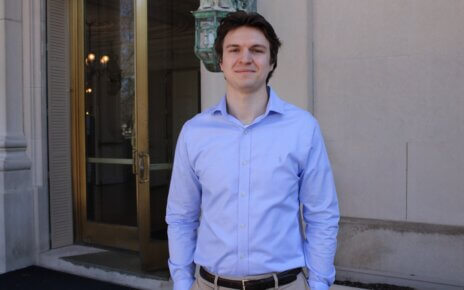Studying abroad is a once-in-a-lifetime experience, one that many Monmouth students enjoy – it allows students to travel and experience new cultures, all while still earning a semester’s worth of credits.
However, there are differences between the classes taken studying abroad and those taken at Monmouth. Study abroad classes are typically three-hour sessions meeting once a week, especially at Regents University, the University’s partner school in London.
“It feels a lot more stressful,” said Ally Rao, a senior English student who studied abroad in London for the spring 2017 semester. “I know classes at Regents were real school, but being back at Monmouth actually feels like school again. London was like a vacation. Being back here feels like home, but it’s also back to reality.”
Brianna McGuire, a senior student, also agreed, elaborating on the differences between the classes at Monmouth and the classes she took while studying in London.
“It’s definitely different,” she said. “Classes abroad are a little less busywork-heavy and focus more on class discussions, rather than on graded assignments throughout the semester.”
As someone who studied abroad as well, the differences between Regents and Monmouth are clear – Regents did not require textbooks, and class attendance was less enforced than at Monmouth. Many only had midterm and final projects, as opposed to homework assignments due on a weekly basis, and several classes utilized the city around them – for example, a professor teaching a literature course would lead students on a tour through a relevant section of London, explaining how the author was influenced.
However, even though students may face changes and a sort of reverse culture shock, study abroad advisor, Jonathan Kull, thinks the program is great for students – not only does it give them a new perspective on the world, but it also can influence choices they make later down the line, especially when it comes to pursuing international education.
“Coming back from study abroad can sometimes be as challenging as getting there,” Kull said. “These students want to share with friends, family and loved ones all about the journey in education abroad.”
Kull wants to encourage students that the international education does not need to end after this one opportunity; there is a multitude of opportunities to continue the experience.



